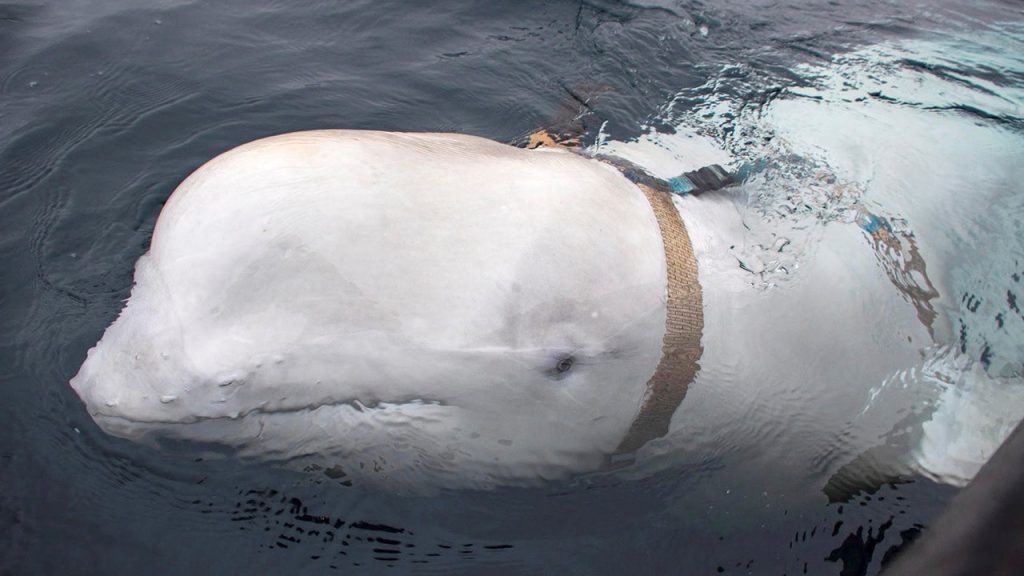Hvaldimir, the beluga whale that captured the hearts of Norway, first gained attention in 2019 when he was found near the island of Ingoya wearing a harness with “Equipment St. Petersburg” written on it. Believed to have been held in captivity by Russia, Hvaldimir was freed from his harness and quickly became a celebrity in Norway. The friendly whale responded to hand signals and was well-loved by the Norwegian people. Tragically, Hvaldimir was found dead off the southern coast of Norway, sparking speculation about the cause of his death.
The Norwegian government had been monitoring and caring for Hvaldimir, who was considered a “free-swimming whale” by the Norwegian Orca Survey. Despite venturing as far as Sweden, the whale always returned home, becoming a beloved figure in his adoptive country. His unexpected death has left many devastated, with marine biologist Sebastian Strand calling it “absolutely horrible.” Conservation groups have filed police reports claiming that Hvaldimir may have been shot, prompting further investigation into the circumstances surrounding his death.
A necropsy will be conducted on Hvaldimir in the coming weeks to determine the cause of his death. The Oceanic Preservation Society expressed deep sadness over the loss of the beloved whale, while nonprofit Marine Mind described Hvaldimir as a symbol of hope and connection between humans and the natural world. The organization highlighted Hvaldimir’s impact in raising awareness about ocean conservation and the importance of preserving wildlife. The beluga whale’s death has brought an outpouring of grief and reflection on humanity’s relationship with the environment.
Hvaldimir’s story is one of resilience and unexpected celebrity, as the friendly beluga whale navigated the waters of Norway with grace and charm. His ability to bridge the gap between humans and wild animals, transcending barriers and teaching valuable lessons about the symbiotic relationship between humanity and nature. As a beacon of hope and connection, Hvaldimir touched the lives of tens of thousands, leaving a lasting impact on those who encountered him. His legacy serves as a reminder of the wonders of the natural world and the importance of conservation efforts to protect marine life.
Norway’s spy agency initially believed that Hvaldimir had been used for research purposes in Russia before being set free near Ingoya. The beluga whale’s intelligence and friendly demeanor endeared him to the Norwegian people, who affectionately dubbed him Hvaldimir in a playful nod to Russian President Vladimir Putin. The whale’s unexpected presence in Norwegian waters captured the imagination of the public, sparking a newfound appreciation for the beauty and diversity of marine life. Despite his untimely death, Hvaldimir’s legacy lives on as a symbol of unity and understanding between humans and animals.
The loss of Hvaldimir has sent shockwaves through the conservation community, with many mourning the passing of a beloved figure who inspired countless individuals to advocate for the protection of marine ecosystems. The beluga whale’s tragic demise serves as a stark reminder of the fragility of life and the urgent need to address threats facing vulnerable species. As efforts continue to unravel the mystery surrounding Hvaldimir’s death, his memory will endure as a testament to the power of nature to bring people together and instill a sense of wonder and reverence for the world around us.


